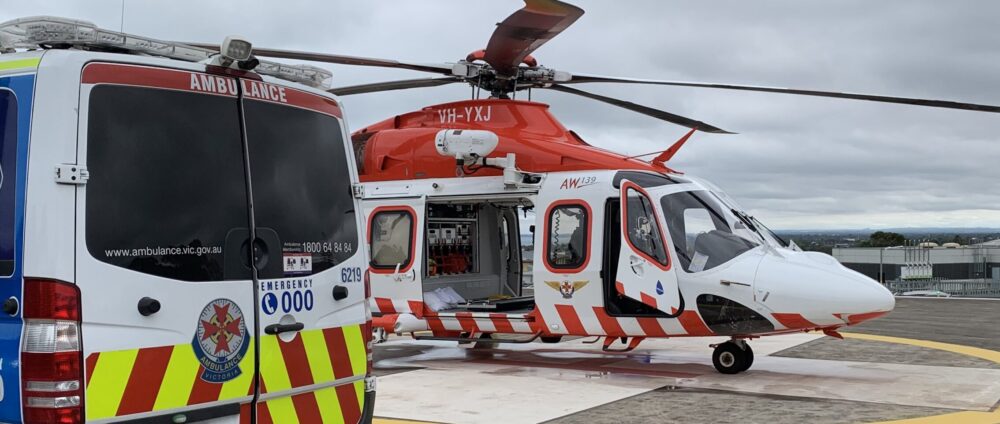One of the most commonly asked questions is “How do I perform better in practical exams?”.
Its certainly a stressor for undergraduate students. I remember getting red faced and clammy handed before my practical exams – and it was only made worse when I had a “hard” assessor.
Well, now *I* am the hard assessor. And it’s not about being an arsehole or having a power trip. Instead, its a sign that the paramedic assessing you wants you to be the best you can be.
Paramedicine is a special career – not just any person off the street can do it. You have people’s lives and wellbeing in your hands… with that in mind, we will work you hard to make sure you’re the best you can be.
Tips for passing scenarios
Know the content.
This may seem obvious, but if you don’t study, you won’t pass. However it goes further than that. One necessary evil of practical scenarios is that you will have a rough idea of what the patient presentation is going to be. If you’re doing a maternity subject, your patient will be pregnant. If you’re studying paediatrics, they will be a paediatric. Use this to your advantage and be sure to brush up on the relevant guidelines.
Have the Clinical Approach downpat
In Victoria, we have a guideline which lists all the assessments you may need to perform. But no matter where you are studying, you will be required to develop your own approach to assessment. Most students can remember to take a blood pressure, but did you ask about regular medications? It is these sorts of questions that students forget, therefore missing something pertinent. Taking a thorough history and a full assessment are vital to establishing your provisional diagnosis. How do we do this every time? Practice, practice, practice.
Plan ahead
In real life, I will tell my partner what my plan is. If we’re on our way to an arrest, I’ll lay out who will do CPR first, who will do the airway, even which bags we will carry. Doing this ensures we’re at our best and also creates a safety net if I forget something. The same can be done with OSCEs. Even if you get a randomly allocated partner, you can outline who is going to take notes, who is going to apply the monitoring equipment etc.
Know your drug contraindications
This is one of the few instant fail points for most scenarios, as it impacts patient safety. There’s no magic way to recall all the drug contraindications, so practice them regularly. I suggest my graduates write them out every day (from memory if possible) for the first few months of their career.
Ask questions well ahead of time
Although universities try their best, there are often scenario limitations based on available equipment and staffing. For example, you might have to perform a chest decompression with a smaller needle than normal to avoid damaging the mannequin. There are almost always small variations like this – if you’re unsure, ask early and ask often. Most uni’s will have an online forum, or contact your teaching staff directly. The day of your assessment is not the day to be asking these questions.
Tips for making scenarios more beneficial
As I mentioned earlier, scenarios have some necessary evil in them. However there are ways you can improve your scenario training to make yourself a better paramedic once you hit the road. As a general rule the more realistic your training, the easier on-road practice will be.
“Train hard, fight easy.”
Military Proverb



Practice in weird places
Whilst patients are often in a house, they aren’t always. Practice performing skills such as cannulation, SGA insertion and others whilst lying prone, with the patient in a lateral position, halfway down a flight of stairs or in a car.
Get comfortable with limited information
Write some scenarios where there is limited information – the patient forgets their medications, they can’t speak English or they’re having a stroke and can’t speak. Learn to push through situations where your assessment gets stuck.
Practice longer scenarios
Practical exams usually have a 20 minute time limit to accommodate the large number of examinees, but when you are practicing consider running for 40 minutes. Actually reassess the patient every 5 minutes, consider what you would do once the analgesia runs out, plan for extrication and then perform it. If possible ‘load’ the patient onto a stretcher and simulate treating them in the back of the truck.
Practice failing skills
A common unrealistic element of scenarios is the success rate of skills – the cannula always goes in, the airway never fails, the anti-emetic always works. Instead, practice failing these skills, and adapt. If you can’t insert an IV, do you know how to give IN analgesia? What about IM?
Communicate with your patient
Often talking to patients gets drowned out by the requirement for the student to verbalise everything to the assessors. When you are practicing, put a real focus into talking to your patient – even if they are a mannequin. Pay special attention to how you explain your diagnosis to them and how you give instructions when performing procedures. Practice explaining both what you are doing and what you are thinking!
Ask how it is done in the real world
Lean on the expertise of your teachers. How would you ask that question in the real world? Would you give analgesia first or prioritise extrication? What are you worried about at this scene? Which medication would you choose and why?
